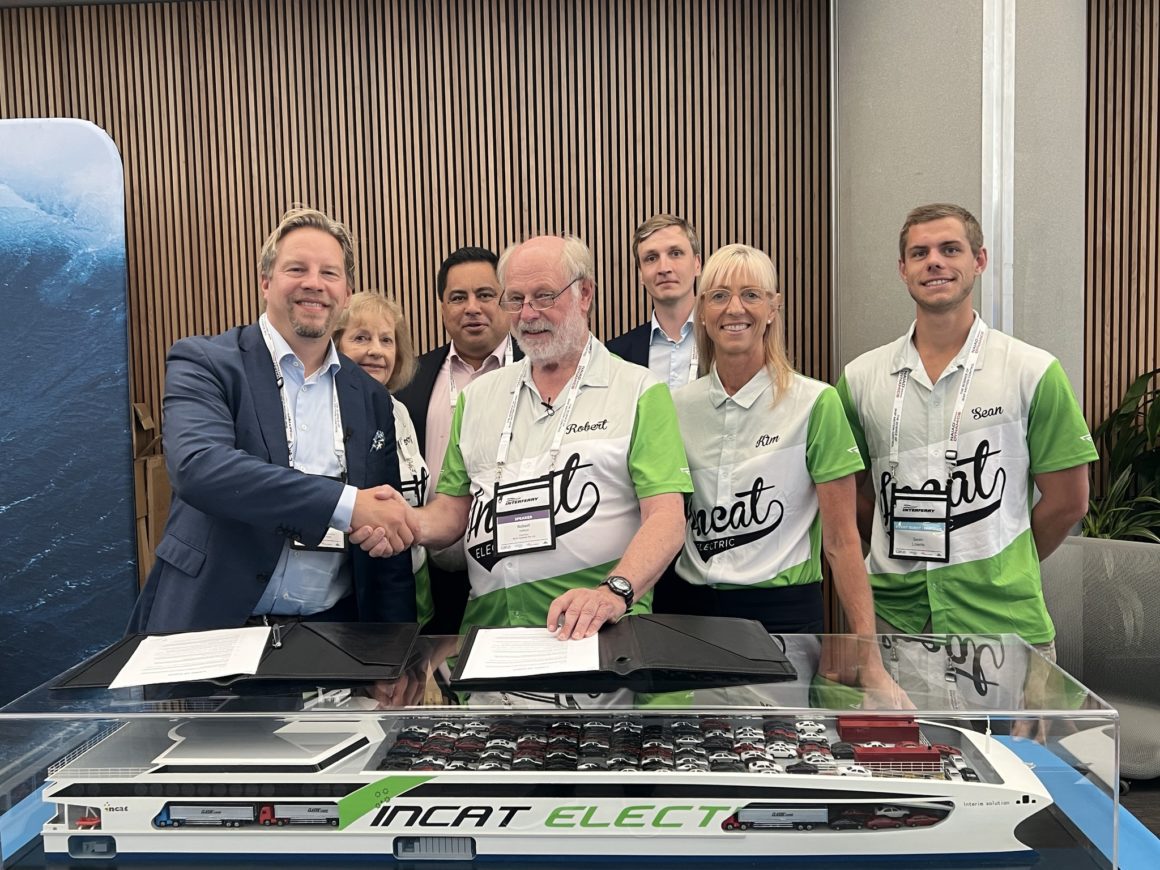Swiss technology company ABB has signed an agreement with Australian ferry manufacturer Incat Tasmania to explore the development of a lightweight fast ferry featuring hybrid electric propulsion.
The landmark agreement between two world-leading ferry design and maritime technology companies also paves the way for the potential development of zero-emission ferries.
Specifically, the two companies will evaluate the suitability of the Incat 148E, roll-on roff-off passenger (RoPax) catamaran ferry for operating in hybrid modes, as well as a potential full battery operation at a later stage.
The Incat 148E was originally conceived of by Revolution Design, Incat’s own in-house design office. Plans are for the hybrid electric ferry to operate at speeds of up to 21 knots. It would feature a range of ABB products including an onboard DC Grid power distribution system, power and energy management system, and various distributed control and diagnostic systems.
“All at Incat are extremely excited at having the opportunity to work alongside ABB,” said Robert Clifford, founder and chairman of the board for the Incat Group of Companies.
“This collaboration combines the world’s leading global technology company and the world’s leading lightweight ship builder into a partnership that is 100 percent focused on completely green energy transportation solution of future.
“Lightweight Incat ships use up to 40 percent less power than an equivalent steel ship, which means up to 40 percent less emissions. We’ve done extensive work in applying our excellence in ferry design to the specifics of electric propulsion. ABB is the ideal partner to help Incat realize our ambition to lead the shortsea shipping industry into a more sustainable future.”

Incat currently operates a range of ferries around the world, including nearly 20 operating in Australia, including the Geelong Flyer in Victoria and a number of ferries operating across Sydney Harbour.
ABB, on the other hand, has already made a name for its self in delivering hybrid-electric propulsion systems with its Azipod propulsion system.
“There is no single solution where shipping’s emission challenges are concerned and we have to be imaginative in this transition to more sustainable ferry operations,” said Palemia Field, global segment manager of ferries at ABB Marine & Ports.
“Considerations of what a future ferry could or should look like and how it would operate are bringing bold thinking to market. ABB’s innovative electric solutions are an enabler for forward-looking companies like Incat.”
Joshua S. Hill is a Melbourne-based journalist who has been writing about climate change, clean technology, and electric vehicles for over 15 years. He has been reporting on electric vehicles and clean technologies for Renew Economy and The Driven since 2012. His preferred mode of transport is his feet.


